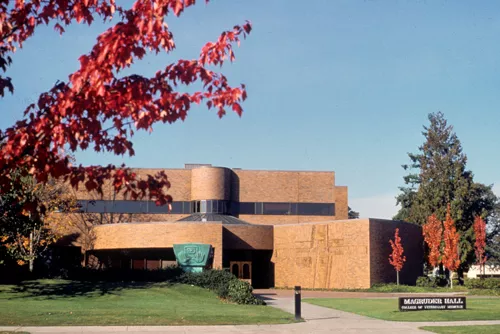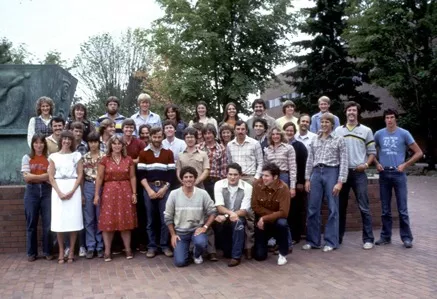In 1975, the State Legislature responded to the need for more veterinarians in Oregon and to the need for increasing the opportunities for Oregonians to study veterinary medicine by establishing the College of Veterinary Medicine at Oregon State University. Magruder Hall, a veterinary teaching facility including a large animal clinical service, was built in 1979. The first class of veterinary students entered the College in Sept. 1979, and received their doctorates of veterinary medicine from Oregon State University in 1983. Initially, students had to spend over a year at Washington State University in Pullman to receive necessary training in small animal medicine and surgery.

In 2001, the Oregon Legislature appropriated funding to add a small animal clinical service to the veterinary teaching hospital and to expand the doctor of veterinary medicine program to provide all four years of instruction in Oregon. The program was implemented in 2003 with the class of 2007. Additions to Magruder Hall were completed in Sept. 2004 and the small animal clinic was opened in May 2005. Together with the Oregon Veterinary Diagnostic Laboratory, which serves as a critical public health resource through expanded diagnostic testing for zoonotic diseases and participation in state and national disease surveillance programs, the Lois Bates Acheson Veterinary Teaching Hospital provides practical training for students and services the diagnostic and clinical needs of our extended community.
The doctor of veterinary medicine program emphasizes the importance of core training in comparative biology and medicine, including all primary clinical disciplines and domestic animal species. Opportunities exist for elective training across a wide variety of more specialized subjects, such as zoo, exotics, and wildlife medicine, marine sciences, clinical nutrition, and various clinical specialties (cardiology, oncology, theriogenology, surgery).
In addition to the doctor of veterinary medicine program, the College supports clinical training of interns and residents in the specialty disciplines of internal medicine, cardiology, surgery, anesthesiology, oncology, and theriogenology. Graduate degree programs (both master's and doctorate) are integrated into the college’s active research programs, which focus on animal health, the interactions between animals, humans, and the environment, and the use of animal models to study diseases impacting public health.
First Graduating Class, 1983
